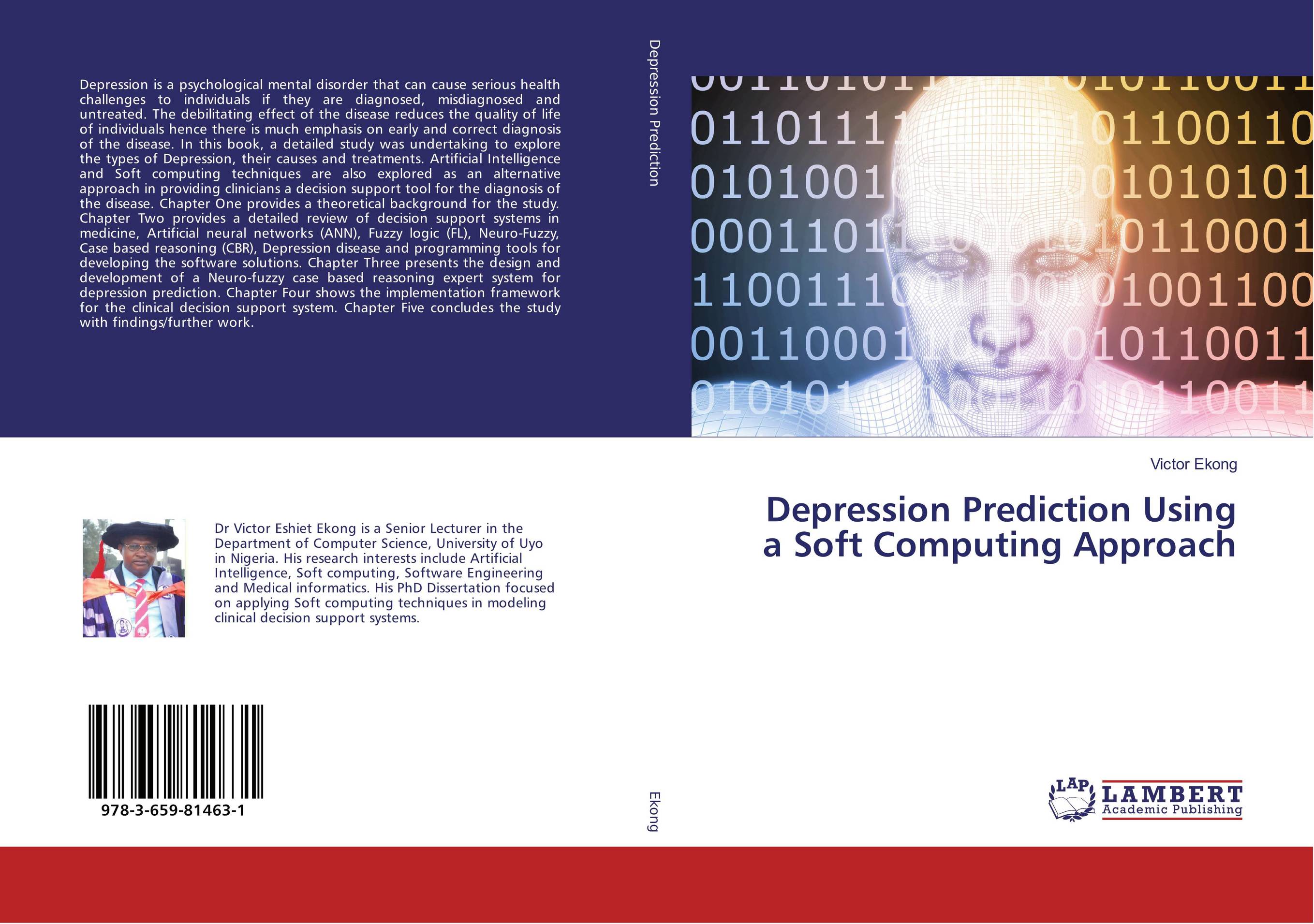| Поиск по каталогу |
|
(строгое соответствие)
|
- Профессиональная
- Научно-популярная
- Художественная
- Публицистика
- Детская
- Искусство
- Хобби, семья, дом
- Спорт
- Путеводители
- Блокноты, тетради, открытки
Depression Prediction Using a Soft Computing Approach.

В наличии
| Местонахождение: Алматы | Состояние экземпляра: новый |

Бумажная
версия
версия
Автор: Victor Ekong
ISBN: 9783659814631
Год издания: 2016
Формат книги: 60×90/16 (145×215 мм)
Количество страниц: 284
Издательство: LAP LAMBERT Academic Publishing
Цена: 51433 тг
Положить в корзину
Позиции в рубрикаторе
Отрасли знаний:Код товара: 158194
| Способы доставки в город Алматы * комплектация (срок до отгрузки) не более 2 рабочих дней |
| Самовывоз из города Алматы (пункты самовывоза партнёра CDEK) |
| Курьерская доставка CDEK из города Москва |
| Доставка Почтой России из города Москва |
Аннотация: Depression is a psychological mental disorder that can cause serious health challenges to individuals if they are diagnosed, misdiagnosed and untreated. The debilitating effect of the disease reduces the quality of life of individuals hence there is much emphasis on early and correct diagnosis of the disease. In this book, a detailed study was undertaking to explore the types of Depression, their causes and treatments. Artificial Intelligence and Soft computing techniques are also explored as an alternative approach in providing clinicians a decision support tool for the diagnosis of the disease. Chapter One provides a theoretical background for the study. Chapter Two provides a detailed review of decision support systems in medicine, Artificial neural networks (ANN), Fuzzy logic (FL), Neuro-Fuzzy, Case based reasoning (CBR), Depression disease and programming tools for developing the software solutions. Chapter Three presents the design and development of a Neuro-fuzzy case based reasoning expert system for depression prediction. Chapter Four shows the implementation framework for the clinical decision support system. Chapter Five concludes the study with findings/further work.
Ключевые слова: ANN, BMI, Case Based Reasoning, depression, DSM, Fuzzy logic, Neuro-Fuzzy, PHQ9



